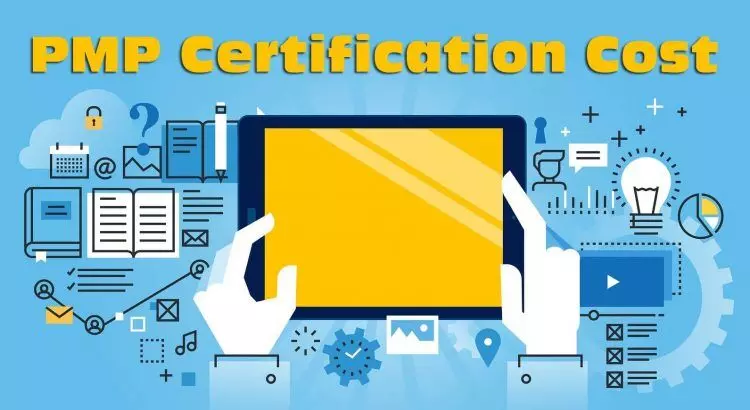PMP Course: All You Need To Know About The Eligibility Criteria
image for illustrative purpose

The Project Management Professional (PMP) certificate stands among the most recognized project management certifications because it provides both extensive knowledge assessment and thorough credentialing processes. You need to understand all eligibility requirements before beginning your PMP Course certification journey because they determine your readiness for the career step.
This article explores five key components of PMP eligibility requirements, giving you a clear understanding of what you must have in order to be eligible for the certification. Knowing these prerequisites will enable you to evaluate your preparedness along with efficiently planning your route to PMP certification, regardless of your level of experience.
Let's examine the essential components of the eligibility requirements as well as how to make sure you fulfill these crucial requirements.
1. Educational Background Requirements And Their Impact
Your educational background serves as the cornerstone of your PMP eligibility and is crucial in defining your certification route. Your eligibility is determined by a sliding scale of educational requirements that interact with your work experience. Compared to a secondary degree (high school diploma, associate's degree, or its equivalent), a four-year degree (bachelor's degree or its equivalent) needs less hours of project management experience. This educational background shows that you can understand difficult ideas and use critical thinking in project management situations. You may design the most effective route to certification by being aware of how your educational history affects your eligibility.
2. Professional Project Management Experience Validation
The primary requirement for PMP qualifying is proving that you have a significant amount of practical project management experience. This criterion guarantees that applicants have more than just theoretical knowledge. Candidates must carefully record all aspects of their project management expertise, including goals, methods, team sizes, budgets, and results.
Every project experience should highlight your leadership and directing responsibilities, not just your involvement in them. Because you will need to offer particular information regarding project schedules, your duties, and the project's influence on organizational objectives, the documentation process demands meticulous attention to detail. This experience validation demonstrates your readiness to manage the complicated scenarios that PMP-certified professionals frequently face and demonstrates your ability to apply project management concepts in practical settings.
3. Project Management Education Hours Requirement
Candidates must finish specific project management education hours in addition to their work experience and formal education. These hours concentrate on particular project management subjects that correspond with the PMP exam's content outline. This criterion guarantees that applicants have a methodical grasp of project management best practices, techniques, and concepts. The educational hours can be acquired in a number of ways, such as self-paced learning programs, online courses, or classroom instruction. This educational component guarantees familiarity with modern project management techniques and helps standardize the knowledge base across PMP candidates.
Essential project management domains, such as project initiation, planning, execution, monitoring and controlling, and closing, must be covered in the hours. This prerequisite prepares students for the thorough nature of the PMP exam by filling up any gaps between theoretical knowledge and real-world experience.
4. Professional Conduct And Agreement Requirements
Another essential component of PMP eligibility is fulfilling the standards for professional and ethical behavior. Throughout their certification process and beyond, candidates must commit to upholding a professional code of conduct in addition to ethics. Maintaining professional integrity, committing to ongoing professional growth, along with acknowledging as well as adopting the certification organization's professional code are all part of this criteria.
The certification shows that you are dedicated to maintaining the highest levels of professionalism in project management. This component of eligibility reflects the professional responsibility that comes with PMP certification and goes beyond simple qualifying requirements. Comprehending and adhering to these professional behavior norms guarantees that you meet the international standards required of PMP certification holders and enhances your reputation as a project management expert.
5. Application Process Verification And Documentation
The successful completion of the application procedure and the provision of appropriate paperwork to confirm your qualifications constitute the last component of PMP eligibility. This procedure necessitates meticulous compilation of supporting documentation and close attention to detail. In their application, candidates must truthfully describe their training, education, and experience; if chosen for audit, all of this information must be verifiable.
Providing contact details for experience verification, describing project experiences, and proving completion of the necessary project management education hours are all part of the application process. Comprehending the verification criteria improves your chances of application clearance and aids in the preparation of pertinent paperwork. Being ready for the potential of an application audit, in which more supporting evidence and verification could be needed to validate your eligibility claims, is another aspect of this process.
Conclusion
Anyone hoping to obtain this esteemed certification must comprehend the PMP qualifying requirements and also join PMP Training in Chennai. The five topics covered offer a thorough rundown of what you must have in order to be eligible to take the PMP test. Every element, including professional experience, specialized training hours, ethical considerations, educational qualifications, and application materials, is essential to guaranteeing that candidates are ready for the certification process.

